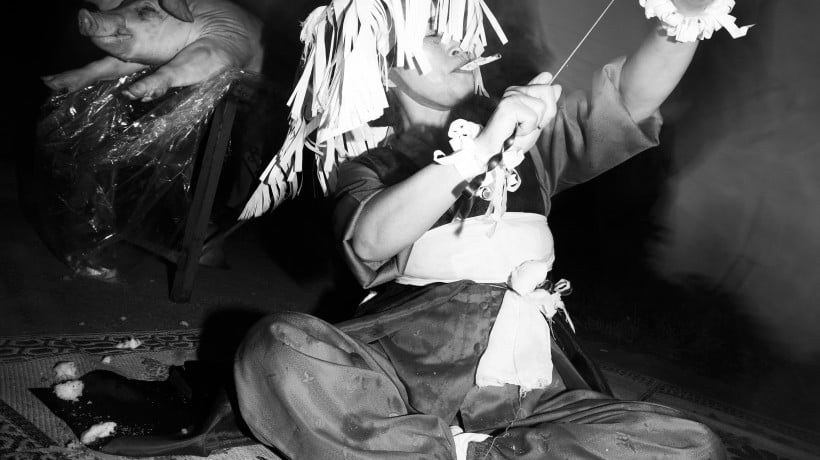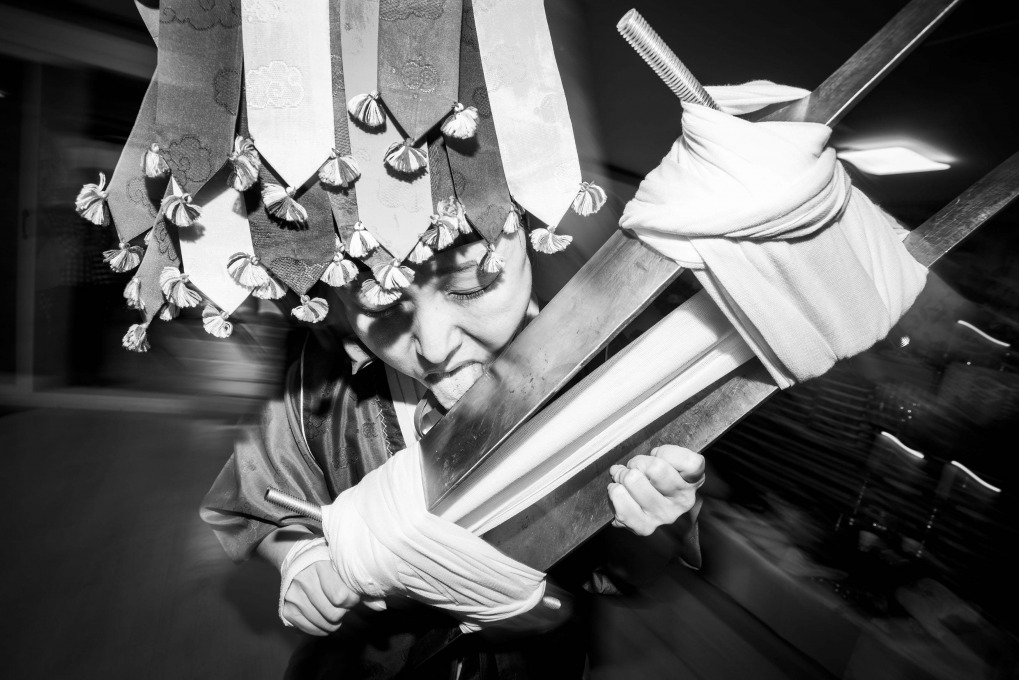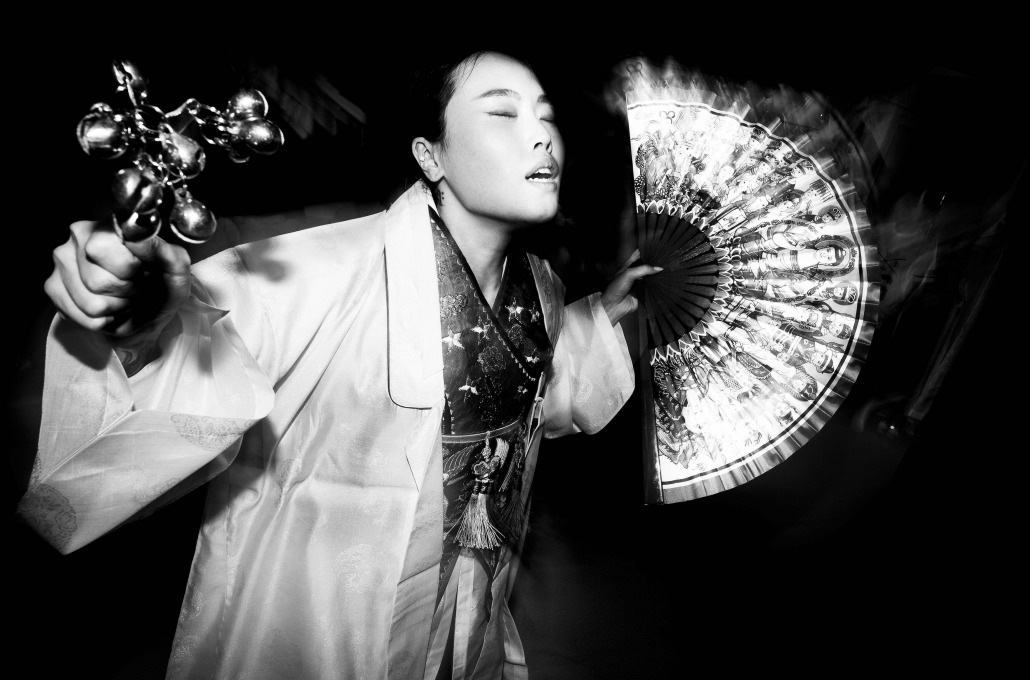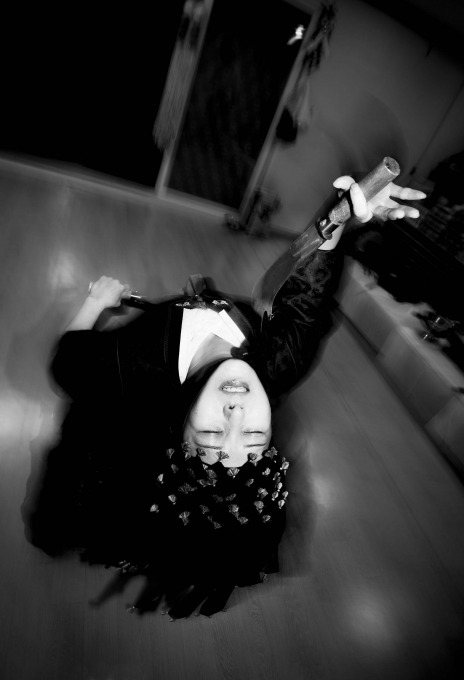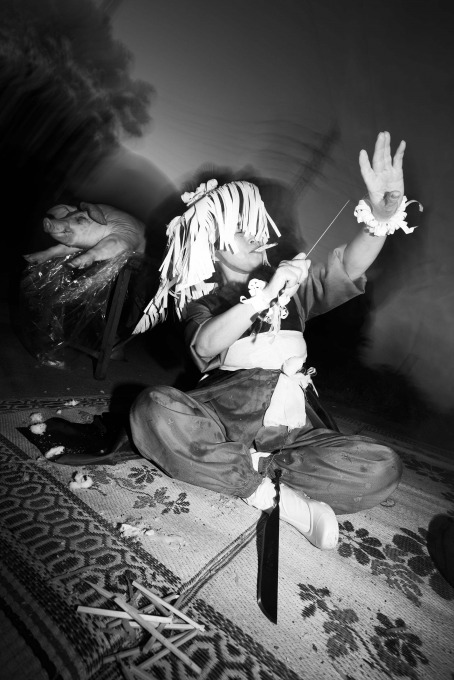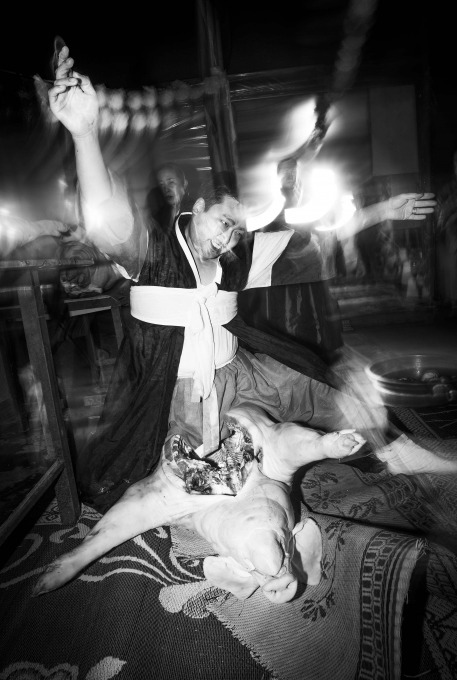
In ecstasy, shamans can perform unusual acts demonstrating that the gods have taken control of the body. A typical sign of spirit possession is that shamans bend their backs extremely far backwards during the knife dance. Their eyes roll inwards and while the drum accompanies this moment with wild blows, the shaman remains in that position.

Spirits of victims of war, fallen soldiers, murder victims, and other unhappily deceased people love meat sacrifice. The pig is the most common animal sacrifice in Korea. Meanwhile spirit possession the shaman pounce on the sacrificial animal, smell it, bite into the flesh, and occasionally even dig themselves into the bloody carcass. The live out their unsatisfied cravings for flesh, blood, and alcohol. These dramatic scenes are an expression of the greed for a life that often ended too soon, violently, or unexpectedly.
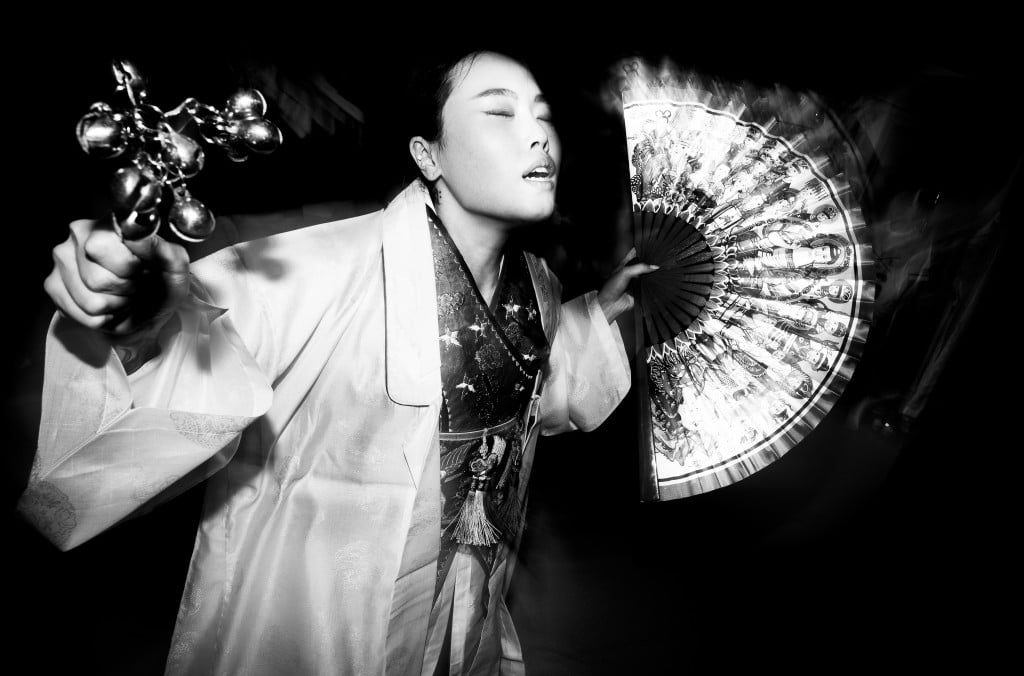
A young novice calls and looks for her gods during her initiation ritual (naerimgut). This is the first controlled spirit possession supervised by the older shamans. This first contact with gods, spirits or ancestors during an initiation ritual is an intense experience.
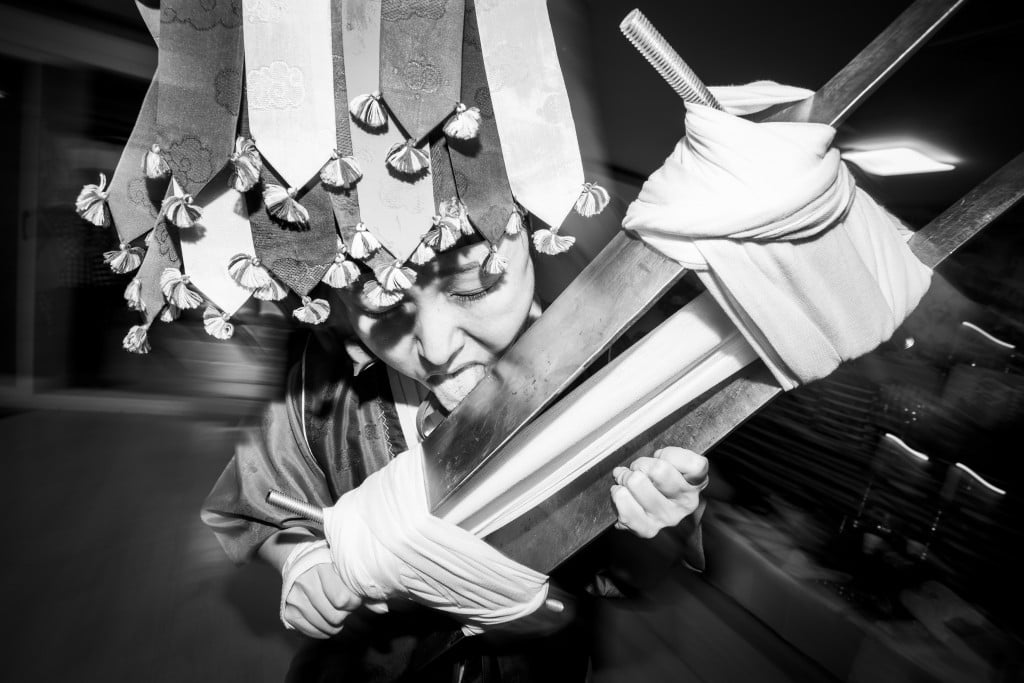
The power of gods and spirits is demonstrated by the inviolability of the shaman. The shamans dance themselves into ecstasy, lick at sharp blades, strike knives onto the chest, arms and face, and finally dance on the jakdu (double bladed, traditional straw cutter).
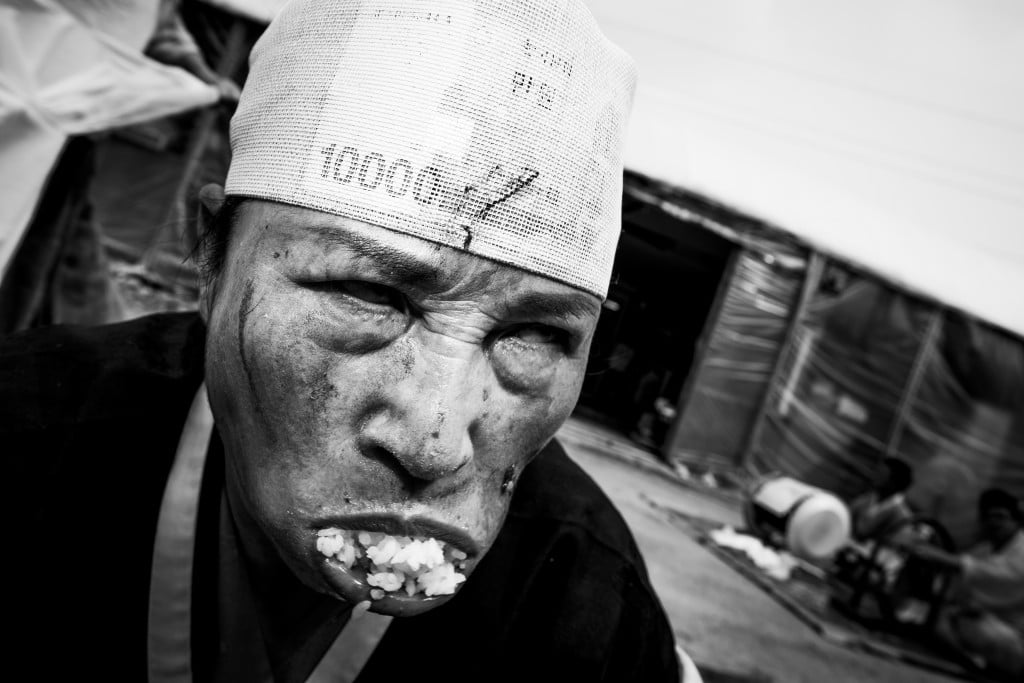
During an uhwangut (ritual against misfortune) the spirit of a soldier from the Korean War possessed a shaman. This soldier had died in the last days of the war. He had left his cover because he was starving and wanted to eat some rice with his comrades. When the men started eating, they were hit by a bomb. The spirit of the soldier still suffered from hunger in the hereafter. He unexpectedly possessed the shaman at the ritual and took the chance to stuff himself with as much rice, meat, and alcohol as possible.

Some of the most terrifying spiritual entities in the Korean folk pantheon are the three Death Messengers (saja). In the hierarchy of the underworld, the Death Messengers serve Yomna, the King of Hee. The soul of the deceased will be picked up by the saja, who will guide and accompany it to the judges of the afterlife. Family members of the deceased try to influence and bribe the saja, so that the way to the afterlife becomes more pleasant. They hope that gifts and donations will lead to the saja positively influencing the judges, and the latter will then pass a milder sentence. The “fee” is paid in the form of food, drinks, and tobacco.
